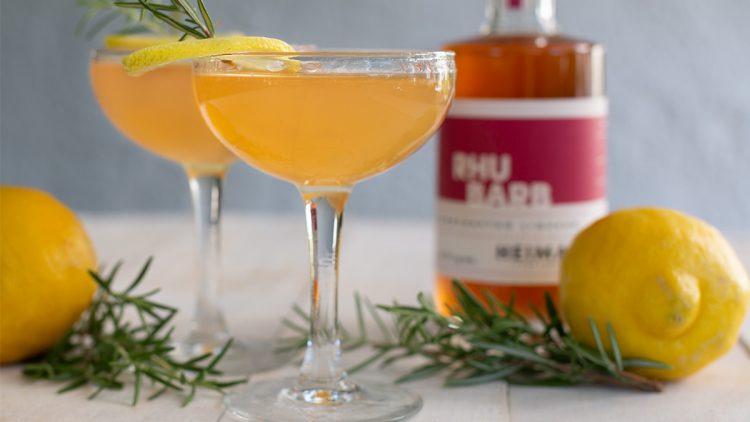Flavored cordials and spirits can serve a wonderful purpose both at home and behind a bar. And as the home cocktailing experience is becoming more prevalent, looking for alternative ingredients to make more complex drinks than a standard Gin & Tonic is definitely top-of-mind.
“Liqueurs are the most underestimated and underrated spirits out there, especially right now. They have so much to offer and you can make beautiful cocktails with just one type of liqueur,” says Ute Londrigan, founder of traditional-style liqueur producer Heimat New York, based in Mamaroneck, NY.
According to Freddie Sarkis, partner and chief cocktail officer and New York-based Liquor Lab, explains that liqueurs can help to cut back on prep times for creating house syrups or infusions, or to replace the availability of local fresh flavors and produce.
“For the home bartender, this take a lot of the guess work out it. White peach, for example, has a short season and might taste great from the local grocer this week, be under ripe next week and mushy the next,” he says.
Sarkis also notes that liqueurs are a good way to experiment with ingredients that aren’t the easiest to prep, either.
“Rhubarb has to be cooked and softened to be used, otherwise it’s very tart and bitter. Having a high-end spirit with rhubarb flavor saves me from having to go through all the trouble. And, I know my flavors will be constant every time,” he says.
While consistency of flavor is one of the biggest benefits to using liqueurs, there is a versatility factor that also makes them a great at-home bar investment. These little boozy shots can be used with a variety of spirit bases, from vodka and tequila to heavier brown liquors like bourbon.
But, said Londrigan, liqueurs can be intimidating for someone who hasn’t dabbled in them before. Many come with a preconceived notion of what a liqueur is, so she recommends a taste-test. Then, it will be easier to build an elegant cocktail with that as the base.
“Start with it neat or on the rocks, just to get the flavor,” she advises, and then move into mixing the flavor-enhanced spirit with sparkling wine and Champagne. Once the preferred flavoring is nailed down, then try your hand at more complex cocktails like a bramble or a specialty margarita.
“There are so many possibilities, especially for someone who loves to make cocktails at home,” Londrigan says.
Another fun use for liqueurs? Creating your own hard seltzer at home with a bit of your favorite club soda or freshly-made bubbly water from your SodaStream.
“Everyone is drinking hard seltzer these days, but why have something artificial when you can make it yourself,” Londrigan says. “Just a bit of sparkling water and your choice of liqueur and you have an even more delicious hard seltzer than something out of a can. Use one or two ounces, depending on how sweet you want it and then top it with the sparkling water. It’s easy, delicious and simple.”
And liqueurs can last a long time, if properly stored, says Sarkis. He recommends keeping these goods sealed when not being used and to make sure to wipe the bottles clean after use.

